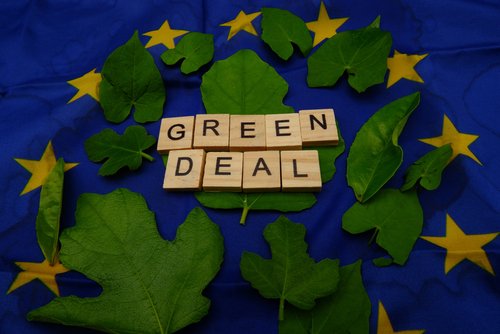Brussels (Brussels Morning) The European Commission today unveiled its “Fit for 55” package — a set of measures to help deliver the EU’s flagship European Green Deal.
The aim of the package is to help transform the EU’s climate, energy, land use, transport and taxation policies, with a view to reducing net greenhouse gas emissions (GHGs) by at least 55% by 2030, compared to 1990 levels.
“This is the make-or-break decade in the fight against the climate and biodiversity crises. The EU has set ambitious targets and today we present how we can meet them. Getting to a green and healthy future for all will require considerable effort in every sector and every member state”, Vice President Commissioner Frans Timmermans declared.
Recognising the hurdles that lie ahead, Timmermans said he hoped other nations would join in committing to the green transition when the COP26 takes place in Glasgow in November.
Green legislative cluster
Today’s proposals cover measures ranging from emissions trading to new sectors to the tightening of the existing Emissions Trading System, which, for the first time, is to include shipping emissions.
In agriculture, new rules on land use and forestry have set an overall EU target for carbon removals by natural sinks, equivalent to 310 million tons of CO2 emissions by 2030.
In order to effectively achieve the Green Deal, the Commission is calling for a faster roll-out of low emission transport modes and the infrastructure and fuels needed to support them, citing the rising instance of hydrogen. Measures to prevent carbon leakage and tools to preserve and grow natural carbon sinks are to be applied.
Sustainability criteria for the use of bioenergy have been strengthened. EU countries must now ensure that the design of any support schemes for bioenergy respects the cascading principle for woody biomass uses.
MEP Cristian Bușoi (EPP) welcomed the Commission’s package, noting that many of its proposals fall within the remit of the Parliament’s Industry Committee, especially those dealing with renewables, energy efficiency, the energy performance of buildings, energy taxation, and emissions trading.
“Our industry will have to implement new solutions and be creative. This effort must therefore go hand-in-hand with an unwavering commitment to SMEs, which must be able to grow and offer new solutions to our industry without being overwhelmed by bureaucracy”, Bușoi observed.
The MEP also stressed the importance of providing better careers and working conditions for European researchers, given that “their contribution will be more essential than ever”.
Financing the green transition
To finance the transition, the Commission is working on aligning taxation policies with the European Green Deal’s objectives. The recently adopted green bonds will play an important role in financing sustainable projects and infrastructure, the Commission said.
The Commission also proposed a new Social Climate Fund to provide dedicated funding so that member states can help citizens finance investments in energy efficiency, new heating and cooling systems, and cleaner mobility.
Recently, the Parliament and the Council voted on the Climate Law, effectively making the EU’s pledge to achieve a 55% GHG reduction a legal obligation.




